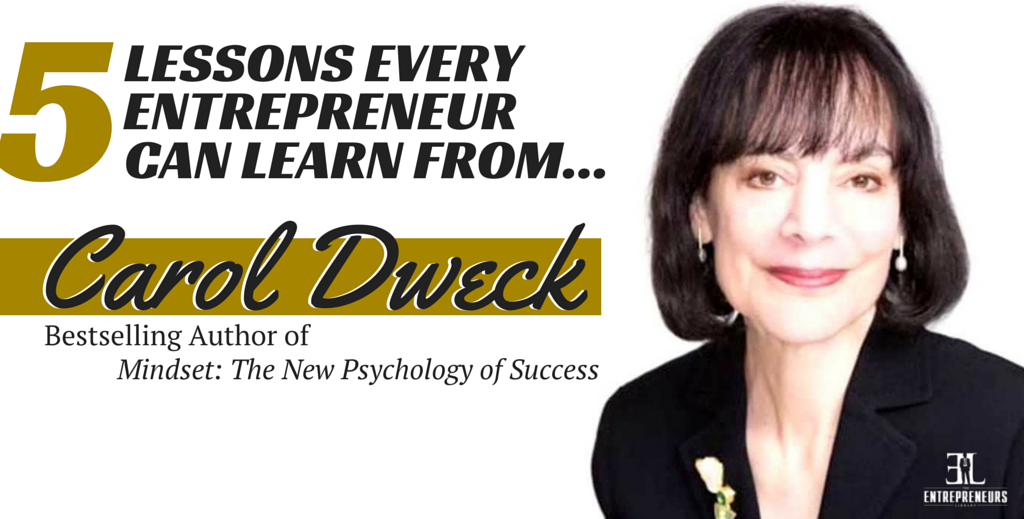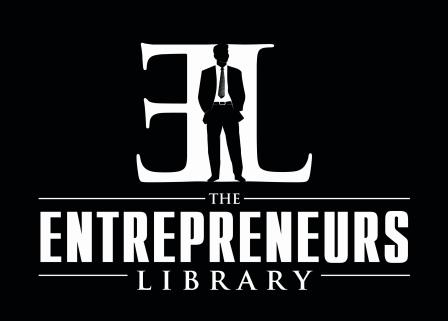5 Lessons Entrepreneurs Can Learn from Carol Dweck

Who is Carol Dweck and what she can teach you:
Carol Dweck is the Lewis and Virginia Eaton Professor of Psychology at Stanford University. Her work is mostly focused on studying motivation, personality, and development. She ties these subjects together in her bestselling book, Mindset: The New Psychology of Success.
Here are five of the lessons that entrepreneurs can learn from reading her book:
1. Be a Learner
Everyone has a mindset. The simplest definition for a mindset is how a person takes in and processes information. According to Carol, people can broadly be divided into learners and non-learners. Non-learners have a fixed mindset. They see talents and abilities as something that you either have or don’t have. If you don’t have them, then you can’t succeed.
Learners have a flexible mindset. They see talents and abilities as something that can be developed. If they don’t have the skills they need right now, they learn how to acquire them. They don’t worry about making mistakes. Instead, they learn from their mistakes and keep pushing forward.
2. Build a Team
If you ask people to picture Thomas Edison inventing the light bulb, most people will describe him as standing alone in a lab tinkering with various equipment. But the fact is, Thomas Edison was not a loner. The exact opposite is true. When he invented the light bulb, he had 30 lab assistants working with him.
These lab assistants included chemists, mathematicians, physicists, engineers, glass blowers, and more. Thomas Edison was a genius, but he didn’t know everything that this group of people did collectively. To be the leader of a team, you don’t have to be the smartest person in the room. You just need to find the smartest people in their field and cast your vision onto them so that they join your team.
3. Hear Criticism Constructively
Some people just aren’t good at giving constructive criticism. However good their intentions are, it may come across as harsh and judgmental. But the fact is that there is more to criticism than how it is given. You can control how you hear it as well.
It’s all too easy to react to criticism defensively. To you, it might sound like they are saying that you are not good enough. But all they may be trying to do is point out where you have room for improvement. Since you should always be striving to better yourself and your business, you should welcome this feedback. It shows you where you can target your focus in order to increase efficiency or improve service.
What you do not want to do is attack the person giving you the criticism. You might feel yourself getting angry, and it is very tempting to lash out and put someone in their place if you believe that you are being unfairly criticized. But if they are trying to help you, you do not want to drive them away. Even if they are phrasing their criticism harshly, and even if they are doing so deliberately, you can choose to find the grain of truth in their words that you can use to improve your business.
4. You Have a Choice
Different people are wired differently. Some people have a natural optimism that allows them to always find the silver lining. Other people get discouraged more easily and are not as naturally resilient to setbacks. But just because you have to work a little harder to find a productive lesson that can be learned in any situation does not mean that you can’t do it.
How we react to setbacks and obstacles is ultimately our choice. We can choose to see them as proof that we just don’t have what it takes to succeed in business. Or we can choose to see them as opportunities to challenge ourselves and grow. Some setbacks can be catastrophic and take years to recover from. But even these can be tackled constructively if we embrace the challenge to stretch ourselves and expand our abilities.
No matter how naturally optimistic you are, there will be days when you get discouraged. This is when it is most helpful to have friends and partners who will come alongside you and help you find your motivation again. But ultimately, no one can change your mindset except you.
5. Take Action
Setbacks can present such huge obstacles that we don’t even know where to begin on damage control. This is when fixed mindsets tell us that we just aren’t good enough to do this. If we were mean to succeed, we’d know what to do. Since you don’t know what to do, you end up doing nothing.
Instead, take action. It doesn’t matter what that action is. It may not even begin to address the problem as a whole. But identify one small step that can get you moving in the right direction. And then take that step. As tiny as it might be, that first move towards growth is the most important thing you could possibly do.
It helps you feel like you are in control again and it snaps your brain back into action. Nobody is every entirely comfortable when they feel like events are out of their control. Doing even the smallest thing to reclaim some measure of control is a huge first step. And it also sends an important message to your employees and your investors. Yes, things have taken a turn for the worse. But you are letting them know that you are still in control and still hopeful for a positive outcome in the end. This is the most important image that you can portray when facing any large obstacle.
More Information About Carol Dweck
Preview Mindset: The New Psychology of Success with Carol Dweck herself
Buy Mindset by Carol Dweck on Amazon today
Visit MindsetOnline.com to learn more about Carol and her book
Follow Carol Dweck on Twitter and Facebook
 The Entrepreneurs Library
The Entrepreneurs Library














